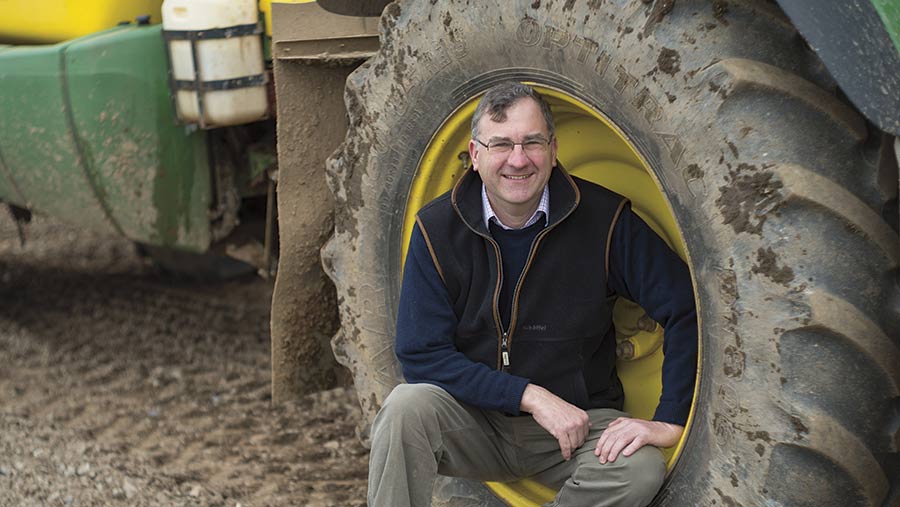Farmer Focus: Marginal arable land gets grass ley treatment
 Jeremy Oatey © Jim Wileman
Jeremy Oatey © Jim Wileman I’ll start with a brief combinable crop harvest report. The winter barley ranged from poor to reasonable but overall not very inspiring.
Oilseed rape was slightly below our five-year average but again with tremendous variation. The winter oats were below our expectations.
Spring barley seems to be potentially the crop of the season with some of the best yields and quality I have seen.
See also: Read more from our Arable Farmer Focus writers
Winter wheat seems to be around our average but back a little on the past two seasons.
The peas have just about “washed their face” leaving only the beans to cut at the time of writing.
The spring barley performance does demonstrate the benefit of a mixed cropping portfolio to spread risk.
It is a crop that I have often been forced into growing because of other constraints such as salt burn on the coastal land or the need follow forage crops.
Many times I have questioned whether there is an alternative, but it has proved its place this season.
It is also relatively cheap to grow compared with the winter varieties.
My aim has to be to use the land to graze sheep over winter and follow with consistent crops of spring barley so that it maintains a viable role.
I have taken the decision this autumn to sow grass leys in some of the more marginal arable fields where growing potatoes, vegetables or flowers in the rotation is not an option.
This, I feel, will help towards improving our average yields and consequently reduce our cost of production. It has the added benefit of making us less reliant on grass keep, which is a further cost saving.
We are well set up with portable livestock infrastructure and electric fencing so usage is not an issue.
I plan to build fertility and if the likely cereal margin gets to a point I’m happy with, I have always got the option of bringing the land back into the rotation.
Finally, I have noted the ongoing consultation regarding agricultural support post-Brexit.
I would like to see something innovative which promotes ongoing modernisation of the industry and which doesn’t just inflate land values or rents.
No challenge there.
Jeremy Oatey manages 1,200ha of arable land near Plymouth in Cornwall and is 2013 Farmers Weekly Arable Farmer of the Year. Cropping includes wheat, barley, OSR, oats, beans, potatoes, onions, swedes and daffodils.
